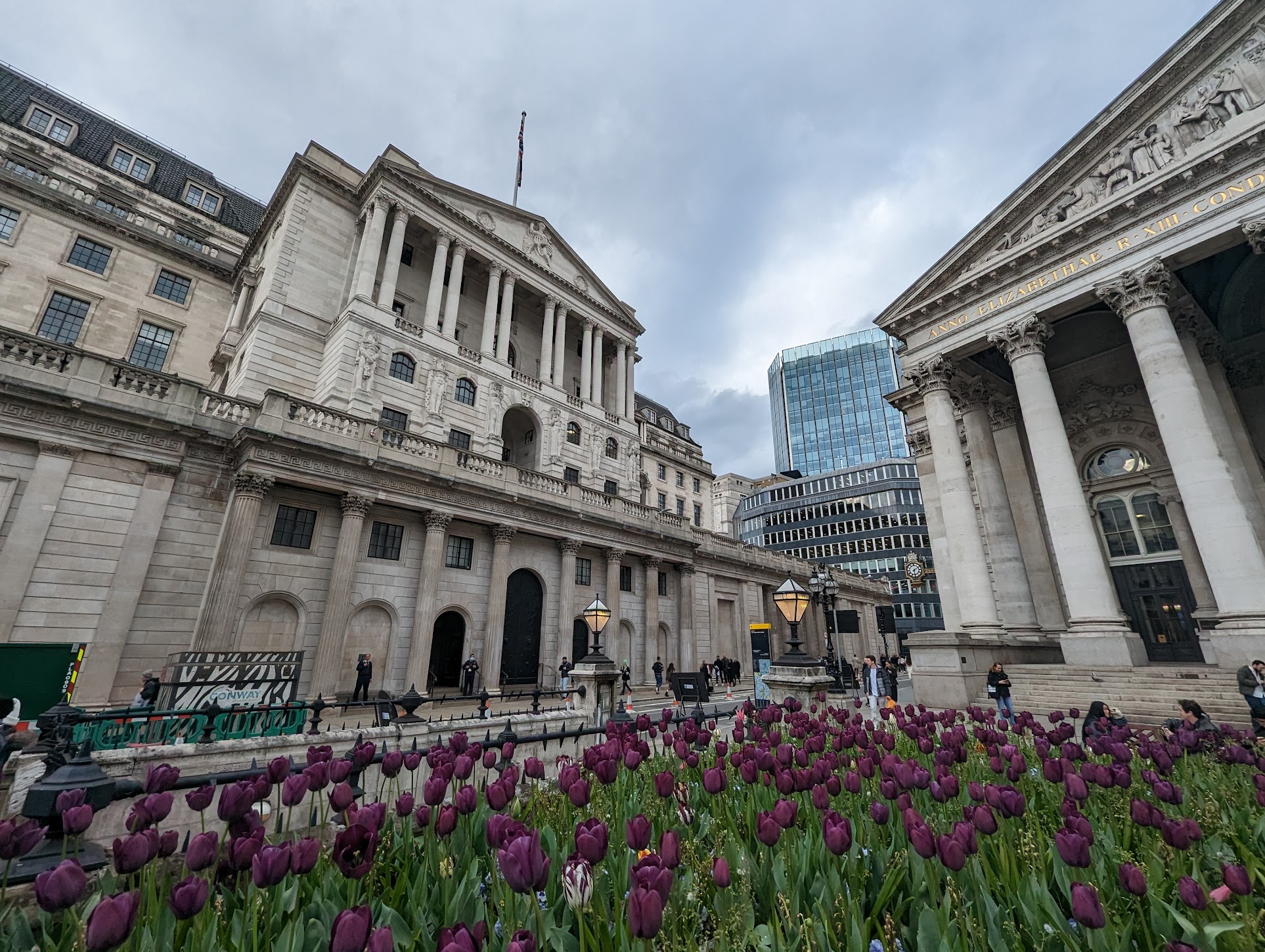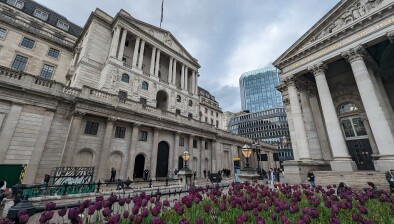Stagflation fears grow as UK inflation climbs to 3.6%

The Bank of England building (Credit: George Iordanov-Nalbantov)
UK inflation unexpectedly rose to 3.6% in June, casting doubt on the likelihood of an interest rate cut in August.
The figure, released by the Office for National Statistics, surpassed analysts’ expectations that inflation would hold steady at May’s rate of 3.4%.
The surprise increase complicates the task for the Bank of England’s Monetary Policy Committee (MPC), which has a mandate to return inflation to its 2% target. The MPC has already cut its key interest rate four times since last summer to the current 4.25%, but policymakers remain divided on the persistence of price pressures.
Core inflation, which strips out volatile food and energy prices, also climbed from 3.5% to 3.7%. Services inflation, a key indicator of domestic price pressures, remained stubbornly high at 4.7%. The pound strengthened on the news, rising 0.2% against the dollar to $1.340.
Analysts warned the combination of rising inflation and negative economic growth points towards a “stagflationary” environment. The data gives the MPC less flexibility to lower borrowing costs, meaning households may not see the mortgage relief they had hoped for. The difficult economic picture is also likely to increase pressure on the Chancellor to consider tax rises in the Autumn Budget.
While some experts believe an August rate cut is still possible, they concede that the case is now significantly weaker.
Guy Foster, chief strategist at RBC Brewin Dolphin, said: “Inflation has come in ahead of expectations and inflation continues to edge higher.
“This was unhelpful news for the Bank of England, which wants to cut interest rates to support growth. If interest rates don’t come down, the government interest bill will be higher and the pressure for higher taxes will become more acute.
“The biggest rise in inflation was from energy prices, which rose due to the events in the Middle East. Part of that should reverse, but the impact will be muted. Beyond that, price gains seemed quite broad-based, with services inflation remaining strong. An interest rate cut in August still seems likely but the case is weakening.”
Scottish Friendly savings expert, Kevin Brown, said: “It is difficult to see what else could go wrong for the Chancellor as inflation data for June came in ahead of expectations. Combined with economic growth going backwards, the environment is starting to look distinctly stagflationary.
“Rising prices also give the Monetary Policy Committee (MPC) less flexibility on interest rate cuts. It had been hoped that the base rate might be cut at the start of August, but this now looks less likely. It means households may not get the tailwind of falling mortgage costs they’d hoped for.
“The weakness in the economic data is likely to prompt further speculation on how the Chancellor could raise revenues in the Autumn Budget. Proposals currently on the table include changes to the pension regime, a wealth tax, freezing personal allowances or tinkering with the VAT thresholds.
“No one has a crystal ball, but it’s nonetheless clear to see that investors need to be realistic about what may be coming down the line and protect their savings wherever possible.”






